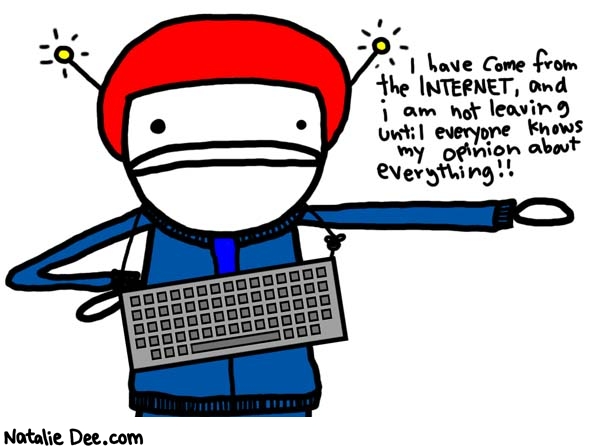My fis 1311 class just wrote papers on whether or not libraries matter, based on the article: Chad, K. and Miller, P. (2005). “Do Libraries Matter? The Rise of Library 2.0” Talis, Nov 2005, retrieved October 16 ,2007 from http://www.talis.com/applications/downloads/white_papers/DoLibrariesMatter.pdf
I'm posting my introduction and conclusions from that paper here, for your reading enjoyment.
Introduction and Initial Observations Do Libraries Matter?, an article by Ken Chad and Paul Miller, is a white paper which promises to explain “the rise of Library 2.0.” The title and subtitle imply that Libraries as they are, Library 1.0, if you will, are operating as an outdated model, one which needs to evolve in order to remain relevant. The “2.0” of the subtitle implies that, as the authors go on to argue, technology will play a key role in their ideas for the future of libraries. Chad and Miller argue that the historical role of the library as our culture’s primary information providing service has been upstaged by the technology of sites such as Amazon and Google. It further claims that, in order to regain their role, libraries must join the ranks of open-sourced, web-based applications, providing hybridized applications and participative platforms” as their primary services to users. (Chad, Miller, 2005, p. 7)
This paper will argue that whilst web 2.0 initiatives can be useful as part of a library’s user interface, libraries do matter. It will also argue that perhaps Chad and Miller are throwing the baby out with the bathwater as they map their “evolutionary change” in libraries with little or no concern for the worth of the current historical institution. It will further argue that the innovations and motivations of the authors are linguistically and ethically flawed, and thus, the worth of the article is severely compromised. Chad and Miller appear to be creating an unwarranted feeling of fear in their readers in order to sell their company’s soon-to-be-released Library 2.0 products.
This “white paper” is, according to Jenny Levine and Michael Stephens, the intellectual trickle which began the now overwhelming waterfall of articles and publications on Library 2.0. (Levine, Stephens, 2007) This policy outline has spawned a large collection of published and unpublished works on Library 2.0 in the past two years. It remains prominent in the historiography of the subject as one of the first papers to deal with the “social and technological changes” which can be accessed and manipulated by libraries to better serve their users through web interfaces. (Miller, 2006, p. 1)
Conclusions: Good Ideas, Bad Frame Library 2.0 is an interesting and innovative concept, and it would behoove librarians to take a hard look at the software which creates the web presence of their institution and examine it with a view towards an open source future. Librarians ought also to begin to imagine libraries without physical libraries, where information exists primarily in the realm of the virtual, and where the reference desk has become the reference instant message. As Web 2.0 brings more accessible software, better data management systems and more lightweight user interfaces, libraries ought to take advantage of these resources to better serve their users. Many interlibrary loan systems, to borrow an example for Chad and Miller, could use an overhaul with software that better monitors the movement of books, or operates on a larger scale, providing more access to more users.
Library 2.0 should not however, become a way for library users to become consumers. Libraries are primarily public service institutions, which have mandates to provide access to their resources, not to sell their users’ data to the highest bidder, or to drastically change their collections practices because of provocative white papers. Chad and Miller made valid points in encouraging libraries not to shy away from technology, and even in their policy to systematically embrace the opportunities of web 2.0, but they undermine their arguments when they over zealously dismiss books and people, both of which have been around much longer than the internet.
An aside conclusion is that papers seem way more authoritative when they are single spaced. Perhaps good to know for further work.


